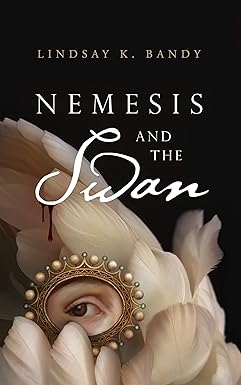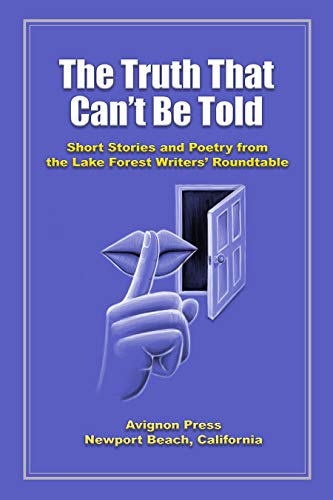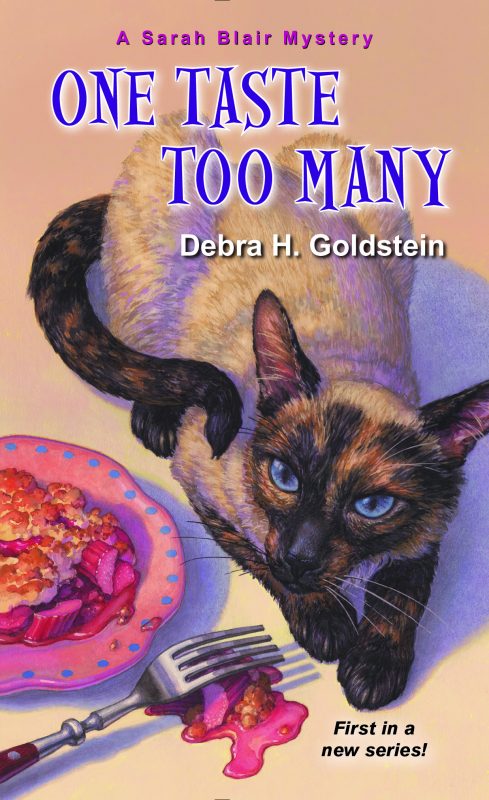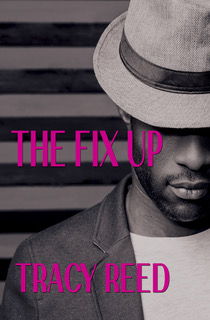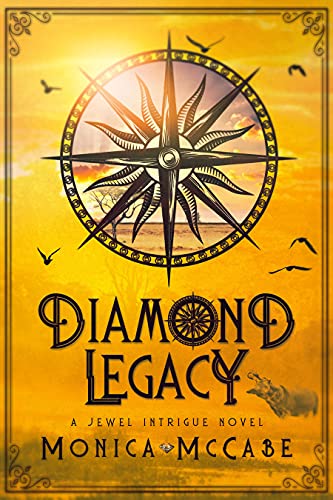Advice to Myself as a Newbie Author
March 23, 2007 by A Slice of Orange in category Archives tagged as Advice to Myself as a Newbie Authorby Christine Rimmer
Hey, everybody. Great to be here on A Slice of Orange. Some of my favorite people can be found at OCC/RWA.
I’ve been asked to write the first Advice to Me as a Newbie post. I’m honored and I’ll do my best. But this could be long, folks. After all, I’ve got the first installment and nobody’s taken all the good ones yet.
 Here I am: Newbie. Love the hair. And get a load of those shoulders! Pads, people. Those were so the days.
Here I am: Newbie. Love the hair. And get a load of those shoulders! Pads, people. Those were so the days.
And looking at me then…le sigh. I sold my first book on my own and then I hooked up with my first agent, the lovely Pat Teal. Pat was the one who told me, “Chris. You don’t have to be alone.†Because, I swear, until Pat, I didn’t know about RWA! So I joined OCC. There, in the back room of a Sizzler restaurant, I found a whole bunch of amazing like-minded women to share with and learn with. There, I joined my first plot group—you know who you are! So. My first bit of advice is patently obvious:
1. Get outta the house—and your own head—now and then. Join a RWA—or whatever writer’s group fits your passion. And participate. Learn! Grow! Share information! Okay, okay. Too many exclamation points. But you get my drift.
And point number one leads me directly to 2 and 3, which are…
2. Make writer friends suitable for a long writing life. This is a necessity. Find other authors you like, admire, want to learn from, have…chemistry with. Build trust and long-term relationships with said authors. Because things will get rocky, folks. Things will get ugly. You need someone you can call when that happens. You need friends you can cry to, friends you can admit your deepest self-doubts and jealousies and pettiness to. Friends to whine to. You need friends who will love you and respect you and help you get through the tough times, no matter how unattractive and needy you are at those times. And you also need someone you can crow to when you triumph. Some moments in a writer’s life are only meant to be witnessed by true friends. Find those friends. And whatever kindness and love they give you, give it back a hundredfold.
3. Reach out a hand. Support beginning authors. Go with your gut on this. Do what feels right to you: judge contests, give the occasional critique. It’s not a matter of owing it having to. It’s a matter of passing the goodness along.
4. Fill the Well. The creative well. It’s not necessarily bottomless, though it can be if you keep replenishing it. Have artist dates, with yourself as a creative individual. Whatever floats your creative boat. Coffee at Starbucks, watching the people; a movie that calls to you, as a writer. A trip to a location you’ll use in you book. It’s not what you do to fill the well, but that you fill it.
5. Nurture the body. Eat well. Exercise. Get a good writing chair and a keyboard that doesn’t strain your hands. Taking care of the equipment is so important. You only get one set and you won’t last in this career if you’re in pain or ill. It takes stamina and strength to write good books over a long career. The condition of your body is going to matter, bigtime.
6. Get a life. Writing is your passion, but it’s not your whole life. Love, live, take care of your family, party hearty now and then. Being able to say, “I’m an author,†is a wonderful thing. But that’s by no means all you are.
7. Center yourself daily. Meditation, prayer. Whatever name you want to give it. Just as you need a life and to fill the well, you need a place to take your mind and heart that’s outside of your ambition and your day-to-day trials and tribulations.
8. Set goals. Break them down into tasks. Accomplish these tasks. Do this daily. And you will amaze yourself with all that gets done.
Newbie self, I could go on and on. But start with the above. It’s going to be a grand adventure. Savor every minute.
Yours,
Christine

Christine Rimmer is the USA-Today bestselling author of over sixty romances. Her latest release is Ralphie’s Wives. Drop in at her blog and say hi.
Reader Review
March 22, 2007 by A Slice of Orange in category Archives tagged as Reader ReviewThe story unfolds with the young very bright editor Claire Truman taking a leap of faith. She leaves her very safe and comfortable but not very challenging position in a much loved company. Her leap of faith much to her friends and family chagrin and warnings lands her in the clutches of Vivian Grant, the overseer of a Hades-like book publishing company.
Claire resigns herself to completing an entire year, hoping to learn as much as she can from this horrible woman. Despite her verbal assaults and tirades Vivian’s actions and motives do teach Claire a certain kind of wisdom. What not to be.
The story is as much about Vivian Grant, who is said to very closely resemble Judith Regan (ReganBooks). For those of you not familiar with her name, she is the one that wanted to publish OJ Simpson’s If I Did It…which did not happen because of public outcry. Thank goodness for some decency in the publishing community.
I found the love stories in the novel to be very touching and very real. They encompass family love and romantic love. Nothing really convoluted, but nice to remember that these kinds of love are still with us today. Claire’s character grew as an editor and also as a person. She is someone that you would want to have as a friend. I liked her.
I read an interview on Bridie Clark which made me smile. She was asked “What are you reading right now?†One of the books she is reading is one of my all time favorites a very old book called Portnoy’s Complaint. She had me on that statement. She secured the deal when she said, “I also read so-called Chic Lit every day. I love fun, entertaining, lighthearted books. I read them the way most people watch television.â€
I found this novel to be very entertaining, some times laugh out loud funny as well as very poignant at times. I would certainly recommend this book as a good solid read and well worth the hardback price.
Writer’s Word
March 21, 2007 by A Slice of Orange in category Archives tagged as Writer's Wordby Jenny Hansen
If you’re a writer some way, some day, you’re going to need help with Word. So when I found out OCC has our very own software trainer in our midst, I begged, pleaded and probably promised things I shouldn’t have to get her to share her Word Wisdom with us. Please give a round of applause to our Word Guru, Jennifer Crooks. She’s been training Word-challenged users like me for over twelve years. Thank you, Jen!
At last, a computer column for us creative types! All you Word-challenged non-techies can breathe a heavy sigh of relief. You now have a place that won’t give you phrases that contain thingies like yottabytes (yes, that’s a real word) and will give you practical tips like how to format a manuscript.
Rule #1
Your computer is stupid.
It’s very important to always remember that your computer is a dumb machine. Contrary to popular opinion, it does not have a brain or a little green gremlin inside and it cannot do anything that you don’t tell it to do. It follows your commands completely and exactly, which means that it’s vital that you learn the proper commands to give.
I highly recommend some of the software manuals that are on the market, especially the Dummies series. The first chapter in the PC’s for Dummies book that I bought twelve years ago was titled, “Your Computer Will Not Explode.†(And it really won’t!)
You’re reading this blog so you already know most of the basics about your computer. Additionally, Mac users who struggled for years in a PC world received a huge boost with the release of OS X a few years back. Microsoft Word is pretty much the same now whether you’re on Windows or a Mac.
The first thing you need to know, no matter which version of Word you’re using is: How to save your book and find it again later with all your changes intact.
Usually, a document is saved to diskette to transport the file between computers or to provide a backup copy of the original file that resides on your computer’s hard drive. This blog document is currently saved on my computer’s hard disk, commonly referred to as the “C:†drive or “Hard drive.â€
First, let’s define the difference between the terms “Save†and “Save As†since they mean two entirely different things. Both can be found in the File menu of your word processing program (see example below).
↠File Menu
You must always “Save As†first. In fact, if you hit the “Save†command first it will automatically take you to the “Save As†dialog box.
When you choose “Save As,†you are giving the file a name and a location to reside on your computer, the same as you might make a folder and put it into a filing cabinet. (Any of you have seen my office can just STOP LAUGHING now…my computer files are pristine.)
The “Save†command saves your latest changes OVER the original—this is what you will do as you make changes to your manuscript.
In the “Save As†dialog box below, the most important places to look are:
“Save in†drop down list (top of the box) which lets you choose what folder you want to file the document in, somewhat like you would open the second drawer of your filing cabinet and grab the folder titled, “Current Manuscript.†.
“File name†(line at the bottom) where you name the file something descriptive that you will recognize later. Document1 is a really bad choice.
“Save as type†drop down list (just below “File nameâ€) let’s you choose whether this document will be saved in Microsoft Word format or in something else, such as Rich Text Format (will give the file an RTF extension instead of DOC), that can be opened in a different word processing program.
Last but not least, the next paragraph is the most important one in this entire column.
When you want to save a copy of the file you are working on, first save your latest changes by choosing the “Save†command from either the File menu or the toolbar (third icon from the left), then choose “Save As†to save the file to a new location. This ensures that you have the latest copy in both places.
All of you who have forgotten this in the past are likely sitting back with a smug smile saying, “Uh-huh. Yep, she’s right. I lost 3 hours of writing that one time…†Because trust me, you only make this mistake once or twice before you either head to a computer class or head to the nearest bar for a round of dirty martinis.
One last word of advice until next time…If you save to a place like a flash drive or a diskette that you plan to travel with, make sure that you have closed the file before you pull out the flash drive/diskette. This is the number one reason why people can’t open the files that they have saved onto an external source.
Tune in for my next column where I’ll be answering Dana’s question:
Are you going to show us how to format a manuscript…especially that 25 lines per page setting?
Of course I will.
If you have any questions for our Word Guru send them to: jennyhansensmail@aol.com
By day, Jen Crooks manages the sales and marketing for a national training firm. After 12 years as a corporate software trainer, it’s nice for her to be able to sit down while she works. By night, Jen writes women’s fiction, chick lit and short stories as Jenny Hansen. She has been a member of OCC since 2001 and has served on OCC’s Board of Directors in a variety of capacities. She is currently the Contest Coordinator for the 2007 Orange Rose Contest for Unpublished Writers.
Confessions of a Podcast Goddess
March 20, 2007 by A Slice of Orange in category Archives tagged as Confessions of a Podcast Goddess.
Confessions of a Podcast Goddess
by Jina Bacarr
Before iPods ruled the planet, FM radio rocked the late night airwaves. Raw, sexy, unscripted. I know. I lived it when I was on air at a popular music station. From the bewitching hour to four a.m., I’d sit in a glass control booth in a strip mall where everyone who walked by could watch the DJ live on-the-air playing what the radio station dubbed “young and beautiful music.” It got weird at times when the bar in the mall closed at two a.m. and a drunk or two tapped on the glass window requesting I play “Last Dance.” I’d smile and continue queuing up the music while I read the news or gave the weather report in my husky, sexy voice: “Overcast with rain, high of sixty-nine” has a whole new meaning when you deliver it in low, breathy tones.
Needless to say, the station got calls. Lots of calls. Most were positive, some weren’t, but in the end sex sells, even radio commercial spots. The account exec told me our Arbitron numbers went up twenty-five percent in the first few months I was on the air. Every time my voice went lower, our numbers went higher. I didn’t know it then, but my gig behind the microphone set the stage for what was to come later in my writing career.
Along the yellow brick road to podcasting, I met up with a few tin men, more wolves than lions, and a scarecrow or two who had no heart. It’s been a bumpy road at best: I’ve been a shopaholic teen in radio commercials, traded sex toy stories with a female radio host in Canada, hosted my own show on Internet radio about the “wild side” of books, and discussed size with an LA radio talk show host usually known for his raucous political agenda.
Then I decided to go it alone as a podcaster. It couldn’t be too difficult, right? A podcast is simply an RSS feed of audio content distributed automatically by subscription or downloaded online through your website or podcast sites. It’s a trend that shows no sign of slowing down. According to recent estimates, there are 20,000 plus podcasts online and listed in directories. Is anybody listening? You bet. Bridge Ratings reports that 8.4 million Americans tuned into at least one podcast by the end of 2006, and by 2010 that number is estimated to reach 60 million. Who listens to podcasts? According to Forrester Research, the fastest growing audience for podcasts is adults 25 to 44.
With my radio background, I was convinced I could do it. I purchased recording/editing software, a good microphone (you want your audience to hear you clearly), and a comfy pair of headsets. I was ready to sail the airwaves talking about my favorite subject.
Sex.
Oh, what fools we writers be…
Tune in next month for Part Two of Confessions of a Podcast Goddess…
Jina Bacarr is the author of The Blonde Geisha and coming in July 2007, Naughty Paris. Jina writes erotic adventure for Spice Books. “Get Caught in the Act.”
Check out Jina’s video podcast promo for “Confessions of a Podcast Goddess” at Daily Motion.
Click here to listen to Jina’s audio podcast preview of the OCC RWA meeting for April.
The Write Way–(because there is no “right” way)…..
March 19, 2007 by A Slice of Orange in category Archives tagged as The Write Way.
By Maureen Child
I was asked to write a monthly blog on Craft for OCC. Very nice to be asked, by the way. But the problem came when I actually started thinking about what to say!
Craft is just so subjective. Are there rules to writing? Absolutely. Should you try to bend them, break them and or spindle and mutilate? Why not? And who am I to tell you not to do it?
So what I’m going to do is, talk about how I write. That’s not necessarily the way you’ll write. Or the way you should write. But it’s what I know. And, I’d love it if you had questions. Or suggestions on what you might like to read about.
On my first blog though, I’m just going to say that to be a writer, you MUST write. Every day. Even it’s only for a few minutes a day. We’ve all got busy lives. Husbands, kids, parents, jobs…and all of it combines to make writing time hard to come by.
But you’re worth the effort. Carve out a little bit of time all for yourself. Early in the morning, late at night. On your lunch hour. Make the writing as important as everything else in your world. Connect with your own imagination. Let the words flow even if they don’t seem to make sense at first glance. You can fix anything. But first you have to write it.
So let’s hear the questions and suggestions. I KNOW you’ve all got opinions!

Maureen Child is the author of more than ninety romance novels and novellas. She’s written historicals, paranormals, contemporaries and series romance. And her favorite book is the one she’s working on at the moment. Publisher’s Weekly says that Maureen Child…is one of the stars in the ascendant…
Affiliate Links
A Slice of Orange is an affiliate with some of the booksellers listed on this website, including Barnes & Nobel, Books A Million, iBooks, Kobo, and Smashwords. This means A Slice of Orange may earn a small advertising fee from sales made through the links used on this website. There are reminders of these affiliate links on the pages for individual books.
Search A Slice of Orange
Find a Column
Archives
Featured Books
THE TRUTH THAT CAN’T BE TOLD BOOK 1
Secrets abound. Everyone has them.
More info →ONE TASTE TOO MANY
For culinary challenged Sarah Blair, there’s only one thing scarier than cooking from scratch—murder!
More info →DIAMOND LEGACY
Diamonds ruined his life and he’s on a path of revenge.
More info →Newsletter
Contributing Authors
Search A Slice of Orange
Find a Column
Archives
Authors in the Bookstore
- A. E. Decker
- A. J. Scudiere
- A.J. Sidransky
- A.M. Roark
- Abby Collette
- Alanna Lucus
- Albert Marrin
- Alice Duncan
- Alina K. Field
- Alison Green Myers
- Andi Lawrencovna
- Andrew C Raiford
- Angela Pryce
- Aviva Vaughn
- Barbara Ankrum
- Bethlehem Writers Group, LLC
- Carol L. Wright
- Celeste Barclay
- Christina Alexandra
- Christopher D. Ochs
- Claire Davon
- Claire Naden
- Courtnee Turner Hoyle
- Courtney Annicchiarico
- D. Lieber
- Daniel V. Meier Jr.
- Debra Dixon
- Debra H. Goldstein
- Debra Holland
- Dee Ann Palmer
- Denise M. Colby
- Diane Benefiel
- Diane Sismour
- Dianna Sinovic
- DT Krippene
- E.B. Dawson
- Emilie Dallaire
- Emily Brightwell
- Emily PW Murphy
- Fae Rowen
- Faith L. Justice
- Frances Amati
- Geralyn Corcillo
- Glynnis Campbell
- Greg Jolley
- H. O. Charles
- Jaclyn Roché
- Jacqueline Diamond
- Janet Lynn and Will Zeilinger
- Jaya Mehta
- Jeannine Atkins
- Jeff Baird
- Jenna Barwin
- Jenne Kern
- Jennifer D. Bokal
- Jennifer Lyon
- Jerome W. McFadden
- Jill Piscitello
- Jina Bacarr
- Jo A. Hiestand
- Jodi Bogert
- Jolina Petersheim
- Jonathan Maberry
- Joy Allyson
- Judy Duarte
- Justin Murphy
- Justine Davis
- Kat Martin
- Kidd Wadsworth
- Kitty Bucholtz
- Kristy Tate
- Larry Deibert
- Larry Hamilton
- Laura Drake
- Laurie Stevens
- Leslie Knowles
- Li-Ying Lundquist
- Linda Carroll-Bradd
- Linda Lappin
- Linda McLaughlin
- Linda O. Johnston
- Lisa Preston
- Lolo Paige
- Loran Holt
- Lynette M. Burrows
- Lyssa Kay Adams
- Madeline Ash
- Margarita Engle
- Marguerite Quantaine
- Marianne H. Donley
- Mary Castillo
- Maureen Klovers
- Megan Haskell
- Melanie Waterbury
- Melisa Rivero
- Melissa Chambers
- Melodie Winawer
- Meriam Wilhelm
- Mikel J. Wilson
- Mindy Neff
- Monica McCabe
- Nancy Brashear
- Neetu Malik
- Nikki Prince
- Once Upon Anthologies
- Paula Gail Benson
- Penny Reid
- Peter J Barbour
- Priscilla Oliveras
- R. H. Kohno
- Rachel Hailey
- Ralph Hieb
- Ramcy Diek
- Ransom Stephens
- Rebecca Forster
- Renae Wrich
- Roxy Matthews
- Ryder Hunte Clancy
- Sally Paradysz
- Sheila Colón-Bagley
- Simone de Muñoz
- Sophie Barnes
- Susan Kaye Quinn
- Susan Lynn Meyer
- Susan Squires
- T. D. Fox
- Tara C. Allred
- Tara Lain
- Tari Lynn Jewett
- Terri Osburn
- Tracy Reed
- Vera Jane Cook
- Vicki Crum
- Writing Something Romantic
Affiliate Links
A Slice of Orange is an affiliate with some of the booksellers listed on this website, including Barnes & Nobel, Books A Million, iBooks, Kobo, and Smashwords. This means A Slice of Orange may earn a small advertising fee from sales made through the links used on this website. There are reminders of these affiliate links on the pages for individual books.


